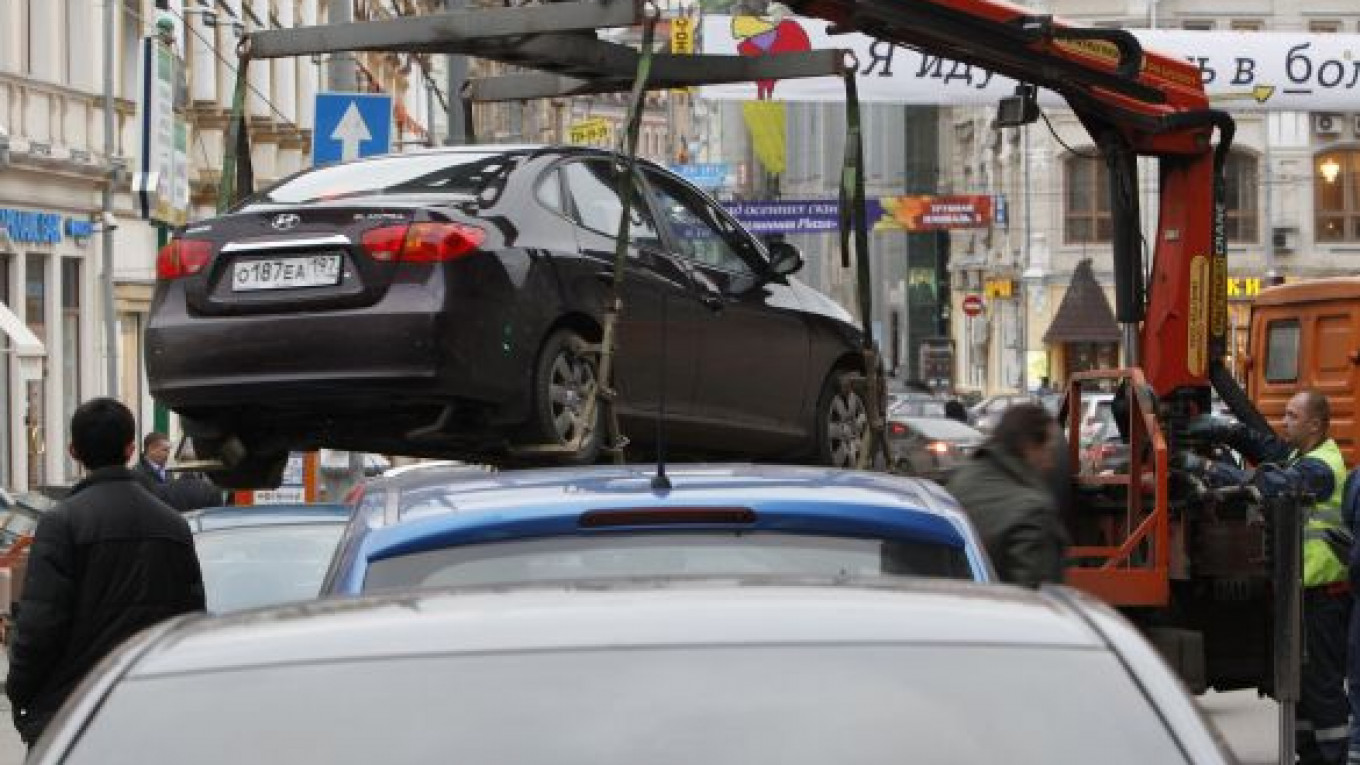City authorities increased parking fines by tenfold on Sunday to try to unclog the capital's roads and sidewalks, to the bemusement and anger of many residents.
Anarchy has ruled for years in the city center, with double-parking increasing traffic congestion and pedestrians hardly able to use some sidewalks because so many cars are parked on them.
But under new legislation, fines for many offenses that have until now been rarely enforced rose from 300 rubles to 3,000 rubles as part of efforts to improve Moscow's image as it tries to become a global financial center.
"I don't see how they can do it. All these people have to park somewhere," said Lyudmila Starostina, looking out onto a central Moscow street from the beauty salon she looks after on Sundays.
"The city already has way too few parking spaces, and now they want to ban even those few spots where it's actually physically possible to leave a car. It's a horrible lot of money they'll be making us pay in fines for it now."
The city of 11.5 million people is struggling to raise its appeal to foreign investors as well as local residents, many of whom are tired of dodging parked cars on sidewalks and finding bus stops blocked by parked cars.
The higher fines will also apply to cars left on crosswalks, tram rails and the entrances to apartment blocks. They went into effect all across Russia, but tickets will be more expensive in the two busiest cities, Moscow and St. Petersburg.
"Well, obviously, this is a positive change. At least it will bring some order," said a policeman who was filling in a ticket for a driver who had been speeding. "My hands are sure to be full now."
Moscow city authorities are also trying to restrict the number of trucks that drive through the city, will introduce a trial period for paid-parking zones and will force owners of cars that are parked illegally to pay for their removal.
It is all part of a drive to reduce the traffic that brings the city to a crawl — and in some cases a standstill — in rush hour. The number of cars has increased dramatically since the collapse of the Soviet Union in 1991, and city authorities have struggled to come up with a solution.
Traffic cameras have also been introduced to catch drivers who speed or veer onto the wrong side of the road to try to get to the front of traffic jams. In some cases, drivers drive along sidewalks.
The importance of finding a solution has grown because President Vladimir Putin and Prime Minister Dmitry Medvedev have set a target of making Moscow a global finance center by 2020.
It is a tough challenge. Foreigners who arrive in Moscow are often put off by the high cost of living, especially the sky-high price of accommodation in the city center, pollution and security concerns.
Moscow simply does not have enough parking spaces to accommodate the number of drivers who want to park in the center each day. The improvement of the road network in and around the city has not helped much, and the creation of special bus lanes has had little impact.
"It's a controversial idea, to say the least. First they should think of making parking spots and only then of introducing higher fines," said a middle-aged woman enjoying a Sunday morning coffee with her friend on an open-air terrace.
She did not want to give her name, pointing to her car parked illegally on the sidewalk on the other side of the street.
A Message from The Moscow Times:
Dear readers,
We are facing unprecedented challenges. Russia's Prosecutor General's Office has designated The Moscow Times as an "undesirable" organization, criminalizing our work and putting our staff at risk of prosecution. This follows our earlier unjust labeling as a "foreign agent."
These actions are direct attempts to silence independent journalism in Russia. The authorities claim our work "discredits the decisions of the Russian leadership." We see things differently: we strive to provide accurate, unbiased reporting on Russia.
We, the journalists of The Moscow Times, refuse to be silenced. But to continue our work, we need your help.
Your support, no matter how small, makes a world of difference. If you can, please support us monthly starting from just $2. It's quick to set up, and every contribution makes a significant impact.
By supporting The Moscow Times, you're defending open, independent journalism in the face of repression. Thank you for standing with us.
Remind me later.






